Claire Tomalin Quotes & Sayings
72 most famous Claire Tomalin quotes and sayings (author). These are the first 10 quotes we have.
“One of my most vivid memories of the mid-1950s is of crying into a washbasin full of soapy grey baby clothes - there were no washing machines - while my handsome and adored husband was off playing football in the park on Sunday morning with all the delightful young men who had been friends to both of us at Cambridge three years earlier.”
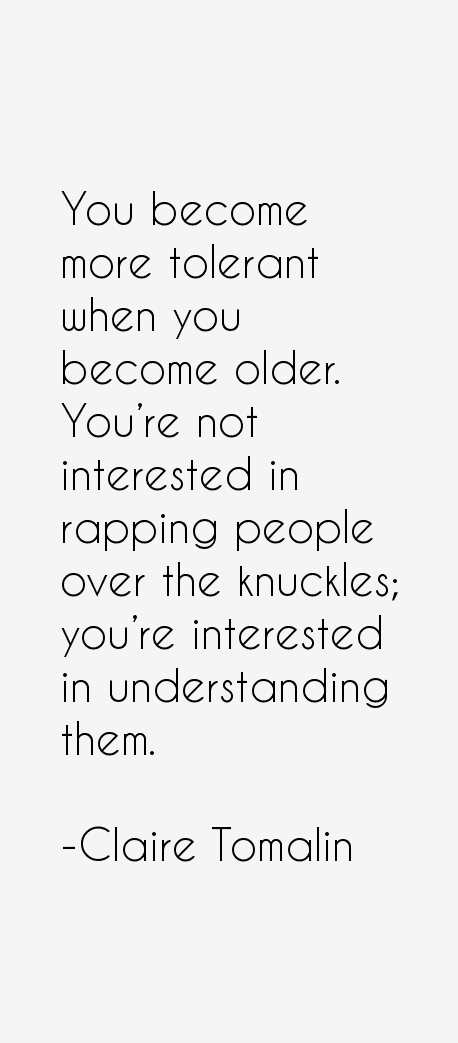
“You become more tolerant when you become older. You're not interested in rapping people over the knuckles; you're interested in understanding them.”
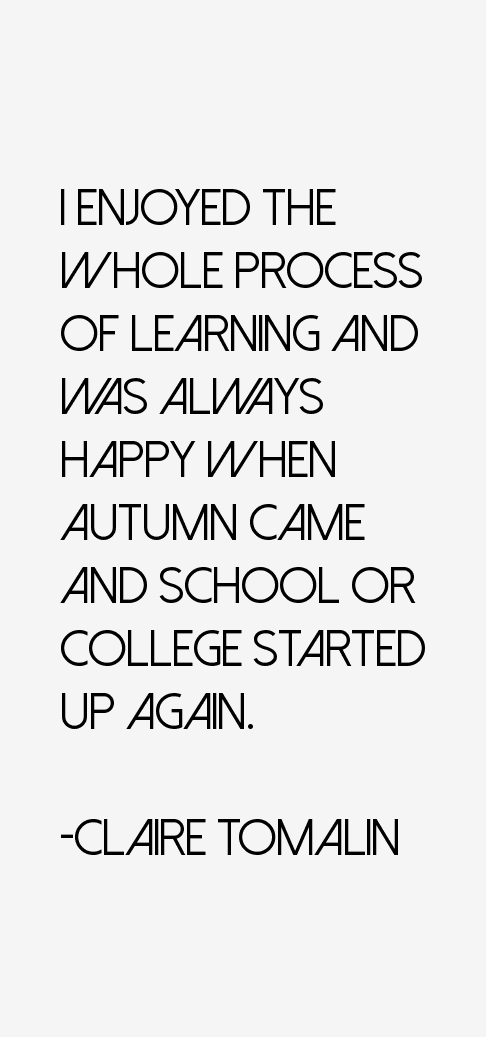
“I enjoyed the whole process of learning and was always happy when autumn came and school or college started up again.”
“Everyone finds their own version of Charles Dickens. The child-victim, the irrepressibly ambitious young man, the reporter, the demonic worker, the tireless walker. The radical, the protector of orphans, helper of the needy, man of good works, the republican. The hater and the lover of America. The giver of parties, the magician, the traveler.”
“As he approached his 28th birthday in February 1840, Dickens knew himself to be famous, successful and tired. He needed a rest, and he made up his mind to keep the year free of the pressure of producing monthly installments of yet another long novel.”
“The thing I love about Rome is that is has so many layers. In it, you can follow anything that interests you: town planning, architecture, churches or culture. It's a city rich in antiquity and early Christian treasures, and just endlessly fascinating. There's nowhere else like it.”
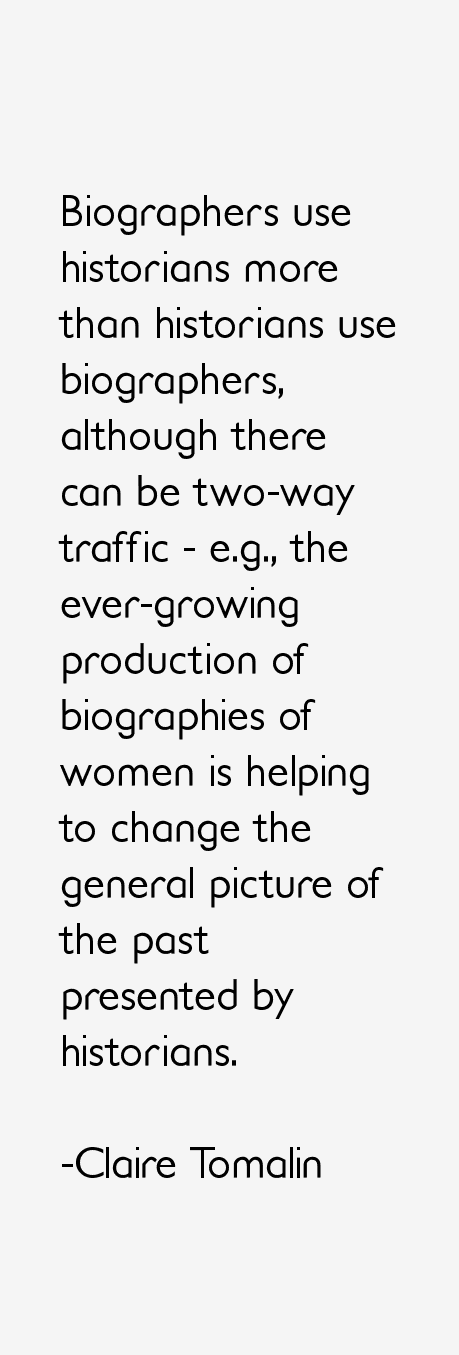
“Biographers use historians more than historians use biographers, although there can be two-way traffic - e.g., the ever-growing production of biographies of women is helping to change the general picture of the past presented by historians.”

“All the people I have written about remain with me - perhaps they are my closest friends.”
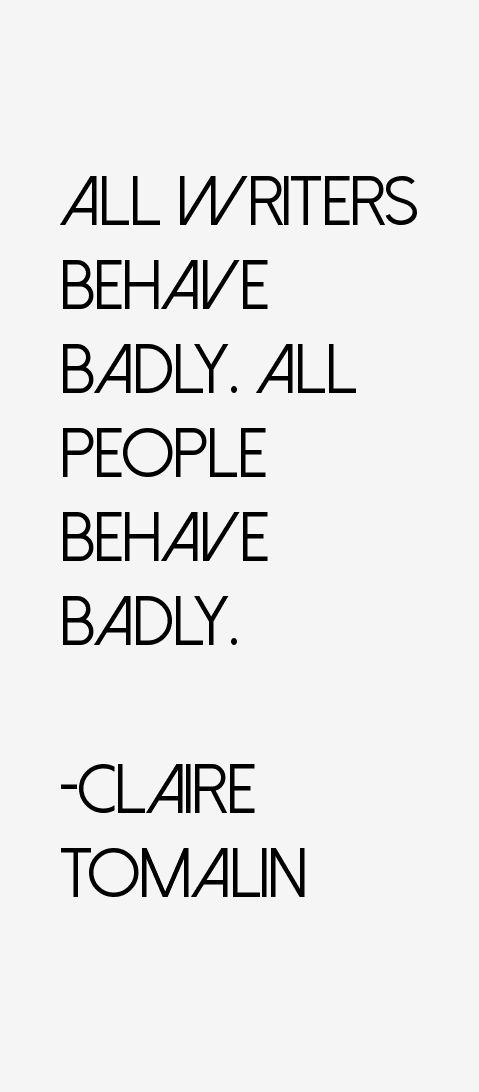
“All writers behave badly. All people behave badly.”
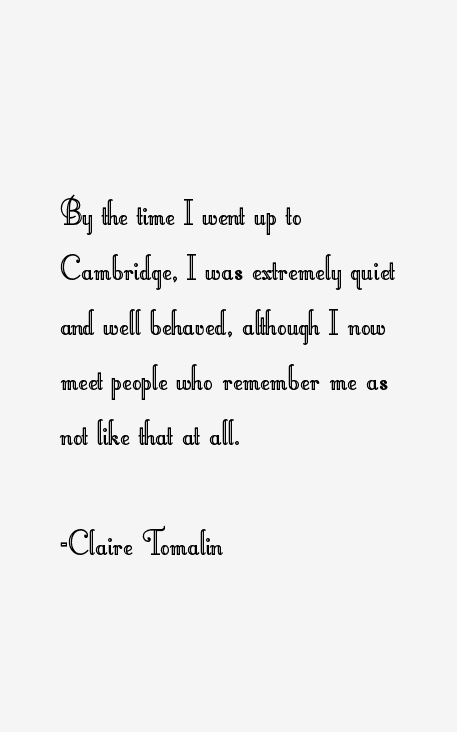
“By the time I went up to Cambridge, I was extremely quiet and well behaved, although I now meet people who remember me as not like that at all.”
Claire Tomalin Quotes Rating
No Ratings Yet
Leave A Comment
























